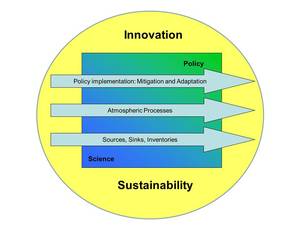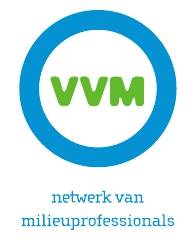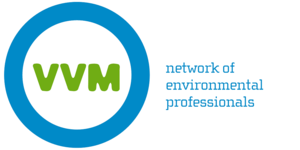Non-CO2 greenhouse gases include many substances, such as methane (CH4), nitrous oxide (N2O), fluorocarbons (CFCs, HFCs, SF6, etc), black carbon, aerosols, and tropospheric ozone (O3). These contribute significantly to climate forcing. Reducing non-CO2 greenhouse gas emissions is often more cost-effective than reducing CO2 emissions.
The scope of NCGG8 will be global challenges, and local solutions. The NCGG conferences pay attention to:
Specific issues to be addressed at NCGG7 will include
We will invite submission of papers with respect to four themes, covering causes, effects and solutions of the environmental problems associated with non-CO2 greenhouse gases. These papers may report on science (from natural, social, technological or integrated sciences) and policy.
 Theme 1: Integration and Innovation
Theme 1: Integration and InnovationTheme 1, is the overarching theme of NCGG7 and aims at the integration and innovation. We seek for integration of innovative studies of sources of non-CO2 greenhouse gases, their effects and strategies to reduce these effects. This theme reflects in fact the overall aim of the conference: to synthesize new knowledge on non-CO2 greenhouse gases, in order to come to more effective solutions. Theme 1 includes contributions from Integrated Assessment studies, multi-and interdisciplinary approaches as well as transdisciplinary sciences. We particularly welcome contributions from the science-policy interface, and on corporate responsibility.
Theme 2 will concentrate on sources, sinks and inventories, including innovations in emissions monitoring and reporting and verification of emission data. Papers presented in this theme will mostly be from the natural and technology sciences, although we also welcome contributions from integrated studies under this theme.
Theme 3 will concentrate on atmospheric processes, and in particular on the physics and chemistry related to the radiative aspects of the atmosphere, including monitoring of concentrations of non-CO2 greenhouse gases, atmospheric processes including the relations between greenhouse gases and other air pollutants (e.g. aerosols). Contributions to this theme may include innovations in models and in atmospheric measurements.
Theme 4, will concentrate on policy implementation, including mitigation and adaptation. Policy and implementation issues may include assessments of implementation programs for reduction of non-CO2 greenhouse gas emissions and innovative approaches in policy implementations. Contributions within this theme will be from both natural sciences (e.g. reporting on new emission reduction technologies) and social sciences (e.g. on the economic or institutional feasibility of environmental measures). Contributions on technological issues and industries’ perspectives are welcomed, as well as discussions on the realization of policies.

Dutch Association of Environmental Professionals
Carolien Kroeze, Wageningen University / Open University (NCGG7 Coordinator)
TNO
Water Systems and Global Change Group, Wageningen University & Research
WIMEK Graduate School
NCGG9 is organized by:
p/a UCo
2e Daalsedijk 6a
NL-3551 EJ UTRECHT
The Netherlands
T +31 (0)30 - 232 29 89
E eciffo@ncgg.info

Stichting MilCon (Foundation for Environmental Congresses, a separate legal entity that is linked to VVM) is responsible for the logistic and financial management of NCGG9. The contents of the symposium is the responsibility of VVM and its co-organisers. Logistic services for NCGG9 will be provided by the VVM-bureau.